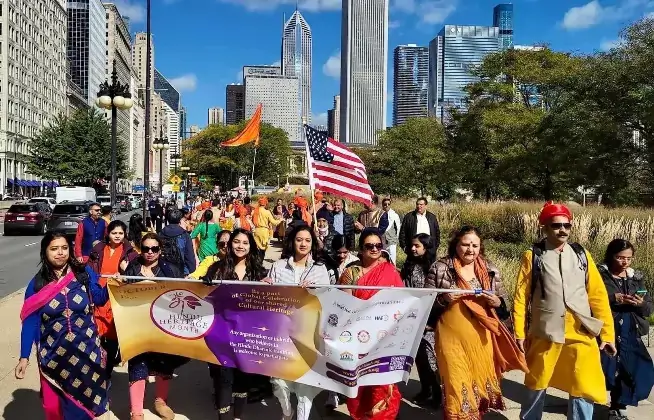
Social Activities
Social Activities in Hinduism Brahman Perspective

Spiritual Community Growth
Hinduism, one of the oldest and most diverse religions, encompasses a wide array of social activities aimed at promoting communal harmony, social welfare, and spiritual growth. From the Brahman perspective, these activities are deeply rooted in the principles of dharma (righteousness), seva (selfless service), and compassion.
Social Welfare InitiativesSocial Welfare Initiatives
Social welfare initiatives in Hinduism, from the Brahman viewpoint, are integral to serving the community and fostering inclusivity. These initiatives range from providing food, shelter, and healthcare to those in need, to organizing educational programs and vocational training to empower individuals.
-
Food Distribution Programs
Brahman communities often organize annadanam (food distribution) programs where nutritious meals are served to the hungry, regardless of caste, creed, or background.
-
Education and Skill Development
Brahman societies emphasize the importance of education and skill development. They establish schools, colleges, and vocational training centers to equip individuals with knowledge and skills for a better livelihood.
-
Healthcare Services
Hospitals, clinics, and medical camps are set up by Brahman communities to provide accessible healthcare services to underserved populations.
-
Environmental Conservation
Understanding the interconnectedness of all life forms, Brahman groups actively engage in environmental conservation efforts such as tree planting drives, waste management programs, and promoting sustainable practices.
-
Spiritual Discourses and Satsangs
Spiritual discourses and satsangs (spiritual gatherings) play a crucial role in fostering spiritual growth and community bonding among Brahman followers. These gatherings provide a platform for discussing philosophical teachings, scriptures, and moral values, thus enriching individuals spiritually and morally.
-
Scriptural Study Groups
Brahman communities organize study groups where members delve deep into ancient scriptures such as the Vedas, Upanishads, and Bhagavad Gita to gain insights into the teachings and principles of Hinduism.
-
Moral and Ethical Discussions
Satsangs often include discussions on moral dilemmas, ethical conduct, and the application of spiritual principles in daily life. Such discussions help individuals develop a deeper understanding of dharma and righteousness.
-
Meditation and Yoga Sessions
Meditation and yoga sessions are frequently conducted to promote mental and physical well-being. These practices help individuals cultivate inner peace, mindfulness, and holistic health.
-
Healthcare Services
Meditation and yoga sessions are frequently conducted to promote mental and physical well-being. These practices help individuals cultivate inner peace, mindfulness, and holistic health.
-
Community Celebrations
Festivals and religious celebrations provide opportunities for Brahman communities to come together, rejoice, and strengthen social bonds. These celebrations often include prayers, rituals, cultural performances, and feasting, fostering a sense of unity and belonging.
Philanthropic Endeavors
Philanthropy is an integral part of Brahman social activities, driven by the belief in karma (the law of cause and effect) and the concept of seva (selfless service). Brahman communities actively engage in philanthropic endeavors to uplift the less fortunate and contribute to the welfare of society at large.
-
Charitable Donations
Brahman individuals and organizations generously contribute to charitable causes, including orphanages, old-age homes, schools for the disabled, and disaster relief efforts.
-
Support for Marginalized Communities
Recognizing the importance of social equity, Brahman groups extend support to marginalized communities such as Dalits (formerly known as untouchables), tribal populations, and economically disadvantaged groups through education scholarships, skill development programs, and community development projects.
-
Animal Welfare Initiatives
Hindus hold deep reverence for all living beings, and Brahman communities often undertake animal welfare initiatives such as running animal shelters, organizing vaccination camps for stray animals, and advocating for the ethical treatment of animals.
Through these social activities, guided by the principles of dharma, seva, and compassion, Brahman communities contribute to the holistic development of individuals and society, embodying the essence of Hinduism's teachings on selflessness and service.